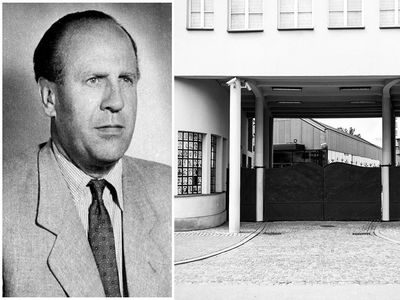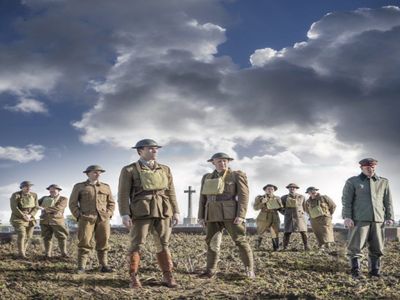Search Results
Rivers
Please select your preferred river
Rivers
Idyllic River Cruises
From the spectacular Danube to the majestic Rhine, discover the stunning rivers and waterways of Europe with our brilliant range of river cruises. Featuring fantastic ports of call, hop on board a comfortable and elegant ship and watch the incredible, ever-changing landscapes pass you by.
Cruise Ships
Please select your preferred cruise ship
Ships
Railways
Please select your preferred railway experience
Railways
Remarkable Train Journeys
With our fantastic range of rail holidays, you’re guaranteed a truly unforgettable experience. Discover breathtaking views from the iconic Glacier Express and the Mont Blanc Express, or enjoy idyllic journeys on nostalgic railway lines. From the Spanish Pyrenees to the Italian countryside, see more with our fully escorted tours.
Travel Options
Select your travel option from below
Outbound & Inbound Travel
Search using your town name below or select using the departure points list
Leicester Birmingham Rainham South Mimms Services Wetherby Services Bedford Preston York Manchester Newcastle under Lyme Bolton Hilton Park Services Huddersfield Stockton Chester Leeds Milton Keynes Newcastle upon Tyne Northampton Southend Sunderland Bury Colchester Coventry Sutton Coldfield Basildon Bradford Stockport Darlington Durham Rochdale Birkenhead Brentwood Wrexham Harrogate Keighley Lichfield Wakefield Warrington Ashton Under Lyne Blackburn Sandbach Services Thirsk Wigan Cleveleys Halifax Reading Scarborough Southampton Southport Watford Widnes Hartlepool Portsmouth Rayleigh Chieveley Services Liverpool Selby Blackpool Dewsbury Lancaster Luton Nuneaton Runcorn Wolverhampton Basingstoke Solihull St Helens Bristol Dartford Leigh London Victoria Oldham Prescot Rugby Wallasey Bishop Auckland Burnley Crewe Frankley Services Middlesbrough Prestatyn Rotherham Colwyn Bay Exeter Macclesfield Rhyl Sale Accrington Chorley Northallerton Ringwood Warwick Altrincham Cardiff Stafford Abergele Banbury Formby Havant Knaresborough Nantwich Pontefract Ripon Romford Fareham Llandudno Junction Tamworth Bootle Bridgwater Cheadle Gateshead Hoddesdon Letchworth Newport Stevenage Bournemouth Cheltenham Chester Le Street Guildford Hatfield Hemel Hempstead Taunton Washington Worcester Dudley Eastleigh Loughton Newton Aycliffe Pickering West Bromwich Gloucester Cheshunt Uxbridge Welwyn Garden City Bracknell Doncaster Chesterfield Christchurch Lincoln Bexleyheath Cardiff West Services Maidenhead Aldershot Chatham Swansea Croydon Derby Hereford Maidstone Newton Abbot Orpington Farnborough Gordano Services Weston Super Mare Bridgend Camberley High Wycombe Sedgemoor Services Staines Bromley Bromsgrove Paignton Totton Woking Kidderminster Norwich Redhill Slough Barnsley Gravesend Leatherhead Leicester Forest East Services Ross on Wye Stroud Stop 24 Services Stourbridge Torquay Sutton Twickenham Hinckley Sheffield Hounslow Nottingham Redditch Lymm Services Oxford Mansfield Worksop Woodall Services Beaconsfield Shipley Stratford Upon Avon Leyland Clacton On Sea Coalville Peterborough Services Chester Services Northwich Clacket Lane Services Congleton Rawtenstall Ashby De La Zouch Ashford Brighouse Enfield Walsall Watford Gap Services Fleet Morecambe Pudsey Maidstone Services Knutsford Services Llangefni Ware Dunstable Epping Hertford Mold Plymouth Witham Grays Uttoxeter Cobham Services Neath Halesowen Hopwood Park Services Medway Pavilion Services Wimborne Minster Cambridge Caterham Donington Park Services Shrewsbury Hull Burton Upon Trent Chelmsford Telford Pontypridd Cwmbran Llanelli Kings Lynn Winchester Services Carmarthen Crawley Ipswich Brighton Bognor Regis Poole Port Talbot Yeovil Chepstow Gillingham Huntingdon Bury St Edmunds Eastbourne Scunthorpe Attleborough Ferrybridge Stamford Bath Ely Market Harborough Old Swan Salisbury Bamber Bridge Boston Dronfield Stowmarket Thetford Worthing Alfreton March Spalding Cardiff Gate Services Newbury Newmarket Ormskirk Beverley Cleethorpes Diss Doncaster Services Ellesmere Port Blackpool Airport Chichester Kidlington Mexborough Retford Cirencester Driffield Gainsborough Litherland Long Eaton Lowestoft Wythenshawe Abingdon Chippenham Cosham Harlow Kettering Sleaford Belper Epsom Loughborough Maghull Swadlincote Wymondham Bridlington Eccles Soham St Neots Urmston Crosby Heanor Kingston upon Thames Leeming Bar Services Spennymoor Sutton in Ashfield Nelson Barnet Didcot Magor Services Malton Northampton Services Surbiton Garforth Kirkby Rickmansworth Wellingborough Thurrock Services Leighton Buzzard Cullompton Services Leigh Delamere Services Pease Pottage Services Birchanger Green Services Scotch Corner Dover Grantham Services Rugby Services St Albans Swindon Hastings Louth Blyth Services Broadstairs Dorchester Kendal Warwick Services Folkestone Seaford Carlisle Cramlington Kidsgrove Peterborough Skegness Devizes Herne Bay Hythe Castleford Horsham Ludlow Royal Leamington Spa Trowbridge Aylesbury Barrow in Furness Brigg Bromborough Canterbury Eltham Flitwick Hove Leek Witney Ashton-in-Makerfield Biggleswade Guisborough Hanley Haverhill Lancaster Services Lewes Tunbridge Wells Bexhill on Sea Bourne Deal Holywell Littlehampton Penrith Strood Swinton Wellington Whitstable Allerton Beckenham Braintree Cannock Castle Bromwich Chingford Mount Felixstowe Melton Mowbray Rushden Shirley Weymouth Aintree Billingham Burgess Hill Catford Corby East Dereham Gorleston Gosport Hucknall Hunts Cross Larkfield Membury Services Moreton Oswestry Tonbridge Walkden Warndon Andover Arnold Atherton Bangor Cleckheaton Filey Grimsby Horncastle Ilkeston Queensferry Romsey Sandbach Severn View Services Skipton Walton on Thames Westhoughton Atherstone Bearwood Billericay Borehamwood Dagenham Downend Hessle Hornchurch Leominster Margate Northfield Royston Sheerness South Shields Walton Wisbech Bedworth Beeston Bletchley Caerphilly Dorking Golders Green Goole Hailsham Ilford Kingstanding Malvern Middleton Peterlee Pontypool Potters Bar Ramsgate Swanley Ulverston Warminster Winsford Abergavenny Aldridge Carshalton Charnock Richard Services Chesham Clay Cross Corley Services Denton East Grinstead Fleetwood Halstead Haywards Heath Northwood Hills Redbridge Sevenoaks Stratford Sudbury Birchington Bulwell Carnforth Chapeltown Dalton in Furness Ealing FAVERSHAM Frome Illminster Kenilworth Oakham Rochester Sittingbourne Stone Stourport Amersham Barking Barry Beccles Calne Chertsey Corringham Cottingham Cradley Heath Dawlish Farnworth Fordsham Godalming Great Barr Great Yarmouth Harpenden Harrow Hitchin Huyton Kings Heath Lutterworth Morley Ripley Rugeley Ruislip Sheldon Sidmouth Tadcaster Tiverton Towcester Tring Upminster Waltham Abbey Waterlooville West Cliff On Sea Winchester Bispham Whitley Bay Gorseinon Hyde Barnstaple Heathrow Airport Toddington Services Heckmondwike Skelmersdale Gosforth New Malden Manchester Airport Downham Market Dereham Grantham Oxford Peartree Services Plymouth Ferry Terminal / Plymouth Holyhead Bristol Airport Edinburgh Airport Stansted Airport Woolley Edge Services Tibshelf Services Newcastle Airport Boreham Services Gatwick Airport Birch Services Keele Services Birmingham International Airport Luton Airport Milton Keynes Centre Newcastle Terminal Connah's Quay Flint Leeds - Skelton Lake Services Llandudno Colchester Services Copdock Services Hartshead Moor Services Kettering Services Killington Lake Services Washington Services Durham Services Strensham Services Trowell Services Bingley Burley in Wharfdale Cross Hills Elland Horsforth Ilkley Immingham Menston Michaelwood Services Moortown Yeadon Camborne Cornwall Services Ilminster Join at Port London Gateway Services Lytham Merthyr Tydfil Newport Pagnell Services Norton Canes Services Oldbury Swaffham WhitbyHoliday Type
Please select multiple holiday types
Popular Holidays
Seasonal Holidays
Special Interest Holidays
Search using your town name below or select using the departure points list
Leicester Birmingham Rainham South Mimms Services Wetherby Services Bedford Preston York Manchester Newcastle under Lyme Bolton Hilton Park Services Huddersfield Stockton Chester Leeds Milton Keynes Newcastle upon Tyne Northampton Southend Sunderland Bury Colchester Coventry Sutton Coldfield Basildon Bradford Stockport Darlington Durham Rochdale Birkenhead Brentwood Wrexham Harrogate Keighley Lichfield Wakefield Warrington Ashton Under Lyne Blackburn Sandbach Services Thirsk Wigan Cleveleys Halifax Reading Scarborough Southampton Southport Watford Widnes Hartlepool Portsmouth Rayleigh Chieveley Services Liverpool Selby Blackpool Dewsbury Lancaster Luton Nuneaton Runcorn Wolverhampton Basingstoke Solihull St Helens Bristol Dartford Leigh London Victoria Oldham Prescot Rugby Wallasey Bishop Auckland Burnley Crewe Frankley Services Middlesbrough Prestatyn Rotherham Colwyn Bay Exeter Macclesfield Rhyl Sale Accrington Chorley Northallerton Ringwood Warwick Altrincham Cardiff Stafford Abergele Banbury Formby Havant Knaresborough Nantwich Pontefract Ripon Romford Fareham Llandudno Junction Tamworth Bootle Bridgwater Cheadle Gateshead Hoddesdon Letchworth Newport Stevenage Bournemouth Cheltenham Chester Le Street Guildford Hatfield Hemel Hempstead Taunton Washington Worcester Dudley Eastleigh Loughton Newton Aycliffe Pickering West Bromwich Gloucester Cheshunt Uxbridge Welwyn Garden City Bracknell Doncaster Chesterfield Christchurch Lincoln Bexleyheath Cardiff West Services Maidenhead Aldershot Chatham Swansea Croydon Derby Hereford Maidstone Newton Abbot Orpington Farnborough Gordano Services Weston Super Mare Bridgend Camberley High Wycombe Sedgemoor Services Staines Bromley Bromsgrove Paignton Totton Woking Kidderminster Norwich Redhill Slough Barnsley Gravesend Leatherhead Leicester Forest East Services Ross on Wye Stroud Stop 24 Services Stourbridge Torquay Sutton Twickenham Hinckley Sheffield Hounslow Nottingham Redditch Lymm Services Oxford Mansfield Worksop Woodall Services Beaconsfield Shipley Stratford Upon Avon Leyland Clacton On Sea Coalville Peterborough Services Chester Services Northwich Clacket Lane Services Congleton Rawtenstall Ashby De La Zouch Ashford Brighouse Enfield Walsall Watford Gap Services Fleet Morecambe Pudsey Maidstone Services Knutsford Services Llangefni Ware Dunstable Epping Hertford Mold Plymouth Witham Grays Uttoxeter Cobham Services Neath Halesowen Hopwood Park Services Medway Pavilion Services Wimborne Minster Cambridge Caterham Donington Park Services Shrewsbury Hull Burton Upon Trent Chelmsford Telford Pontypridd Cwmbran Llanelli Kings Lynn Winchester Services Carmarthen Crawley Ipswich Brighton Bognor Regis Poole Port Talbot Yeovil Chepstow Gillingham Huntingdon Bury St Edmunds Eastbourne Scunthorpe Attleborough Ferrybridge Stamford Bath Ely Market Harborough Old Swan Salisbury Bamber Bridge Boston Dronfield Stowmarket Thetford Worthing Alfreton March Spalding Cardiff Gate Services Newbury Newmarket Ormskirk Beverley Cleethorpes Diss Doncaster Services Ellesmere Port Blackpool Airport Chichester Kidlington Mexborough Retford Cirencester Driffield Gainsborough Litherland Long Eaton Lowestoft Wythenshawe Abingdon Chippenham Cosham Harlow Kettering Sleaford Belper Epsom Loughborough Maghull Swadlincote Wymondham Bridlington Eccles Soham St Neots Urmston Crosby Heanor Kingston upon Thames Leeming Bar Services Spennymoor Sutton in Ashfield Nelson Barnet Didcot Magor Services Malton Northampton Services Surbiton Garforth Kirkby Rickmansworth Wellingborough Thurrock Services Leighton Buzzard Cullompton Services Leigh Delamere Services Pease Pottage Services Birchanger Green Services Scotch Corner Dover Grantham Services Rugby Services St Albans Swindon Hastings Louth Blyth Services Broadstairs Dorchester Kendal Warwick Services Folkestone Seaford Carlisle Cramlington Kidsgrove Peterborough Skegness Devizes Herne Bay Hythe Castleford Horsham Ludlow Royal Leamington Spa Trowbridge Aylesbury Barrow in Furness Brigg Bromborough Canterbury Eltham Flitwick Hove Leek Witney Ashton-in-Makerfield Biggleswade Guisborough Hanley Haverhill Lancaster Services Lewes Tunbridge Wells Bexhill on Sea Bourne Deal Holywell Littlehampton Penrith Strood Swinton Wellington Whitstable Allerton Beckenham Braintree Cannock Castle Bromwich Chingford Mount Felixstowe Melton Mowbray Rushden Shirley Weymouth Aintree Billingham Burgess Hill Catford Corby East Dereham Gorleston Gosport Hucknall Hunts Cross Larkfield Membury Services Moreton Oswestry Tonbridge Walkden Warndon Andover Arnold Atherton Bangor Cleckheaton Filey Grimsby Horncastle Ilkeston Queensferry Romsey Sandbach Severn View Services Skipton Walton on Thames Westhoughton Atherstone Bearwood Billericay Borehamwood Dagenham Downend Hessle Hornchurch Leominster Margate Northfield Royston Sheerness South Shields Walton Wisbech Bedworth Beeston Bletchley Caerphilly Dorking Golders Green Goole Hailsham Ilford Kingstanding Malvern Middleton Peterlee Pontypool Potters Bar Ramsgate Swanley Ulverston Warminster Winsford Abergavenny Aldridge Carshalton Charnock Richard Services Chesham Clay Cross Corley Services Denton East Grinstead Fleetwood Halstead Haywards Heath Northwood Hills Redbridge Sevenoaks Stratford Sudbury Birchington Bulwell Carnforth Chapeltown Dalton in Furness Ealing FAVERSHAM Frome Illminster Kenilworth Oakham Rochester Sittingbourne Stone Stourport Amersham Barking Barry Beccles Calne Chertsey Corringham Cottingham Cradley Heath Dawlish Farnworth Fordsham Godalming Great Barr Great Yarmouth Harpenden Harrow Hitchin Huyton Kings Heath Lutterworth Morley Ripley Rugeley Ruislip Sheldon Sidmouth Tadcaster Tiverton Towcester Tring Upminster Waltham Abbey Waterlooville West Cliff On Sea Winchester Bispham Whitley Bay Gorseinon Hyde Barnstaple Heathrow Airport Toddington Services Heckmondwike Skelmersdale Gosforth New Malden Manchester Airport Downham Market Dereham Grantham Oxford Peartree Services Plymouth Ferry Terminal / Plymouth Holyhead Bristol Airport Edinburgh Airport Stansted Airport Woolley Edge Services Tibshelf Services Newcastle Airport Boreham Services Gatwick Airport Birch Services Keele Services Birmingham International Airport Luton Airport Milton Keynes Centre Newcastle Terminal Connah's Quay Flint Leeds - Skelton Lake Services Llandudno Colchester Services Copdock Services Hartshead Moor Services Kettering Services Killington Lake Services Washington Services Durham Services Strensham Services Trowell Services Bingley Burley in Wharfdale Cross Hills Elland Horsforth Ilkley Immingham Menston Michaelwood Services Moortown Yeadon Camborne Cornwall Services Ilminster Join at Port London Gateway Services Lytham Merthyr Tydfil Newport Pagnell Services Norton Canes Services Oldbury Swaffham WhitbyDeparture Date
When would you like your holiday to begin?
Calendar Key
Select Departure Month(s)
How flexible are you?
Duration
Select how long you wish to go on holiday for
Duration Key
*Duration may not be available depending on your current search criteria
Coach Type
Select one or more coach types

Luxuria: The equivalent of business class, state-of-the-art Luxuria is the ultimate way to travel.
- Deluxe, armchair-style seats
- Every seat has its own, fully interactive, touch-screen T.V.
- Selection of double and single seats
- Servery on board
- Climate control
- Plug sockets and USB points

Siver Service: Elegant and stylish, Silver Service offers added comfort and fantastic facilities.
- Specially designed reclining seats
- Spacious rear lounge
- Onboard entertainment and satellite navigation system
- Free personal headphones
- Personal tables

Executive: Executive coaches are modern and comfortable, ensuring a relaxing journey.
- Air-conditioning
- Reclining seats
- Servery on board
- Onboard toilet
Price/Budget
Please select price by Passenger or Total and your preferred budget
Use the pricing tool below:
You have selected £0 - £10000 per person
Use the pricing tool below:
You have selected £0 - £30000 per person
Passengers
Enter the number of adults
Your Drivers
Please select which drivers you would like to travel with.
Last-Minute Holidays
Look forward to a holiday departing soon!

GP90: The Great Pilgrimage & Leger Holidays
In August 2018, thousands of members and representatives helped The Royal British Legion recreate the 1928 Battlefiel...

A Personal Account of Visiting Battlefields in the Centenary Year: Part One
Paul Prendergast is a valued customer of ours who recently embarked on a personally significant Battlefields tour to...

Seen it Live: Formula 1 Spanish Grand Prix
The end of the Formula 1 season may be upon us as the countdown to Abu Dhabi is underway, but it doesn't mean we can'...

Mostar: where its quite normal to see someone jumping off a bridge!
I wasn't sure what to expect from the city of Mostar; all I knew about it was the trouble in the early '90s.

Grand Explorer: Delights of the Costa Blanca, Valencia, Burgos & Cuenca
Our 2015 brochure has introduced some fantastic new tours for 2015, including Our Grand Explorer tour, Delights of th...

David McCormack: Playboy, businessman, saviour, spy: Oskar Schindler's lesser known career with German Military Intelligence 1936-40
Oskar Schindler's name became known to millions following Liam Neeson's brilliant 1993 on-screen performance as the l...

Uncover a deeper understanding of Flanders Fields
The small city of Ypres in Flanders was once the center of the European cloth trade.

Journeys End: The Dugout Experience
With the JOURNEY'S END film released this year, there now comes a rare chance to see it LIVE on the very battlefields...

Florence: artistic treasures, amazing architecture and a rapidly-melting
The final city visit on our tour of the Italian Riviera, Tuscany, and Rome was the Renaissance city of Florence, a ci...

River Cruise vs Sea Cruise: What Floats Your Boat?
Looking to dip your toe into cruising? We know, there's so much to choose from.

The 5 Best Travel Apps for your iOS Device
Just a few short years ago, holidaymakers' suitcases were packed with everything from CD players to cameras and books...

2017 Battlefield Anniversary Timeline - WWI
2017 marks the penultimate centenary year of the end of World War One.

Susies Amazing Grand Explorer Adventure
Sue Clark, one of our customers, has recently returned from her holiday with Leger Holidays.
We offer flexible payment options
Once you have booked your tour either online, or by telephone 01709 787 463 , you have the flexibility of how you pay off the remainder of your balance. You can:
- Use our balance payment facility online to make and track your card payments. You can pay as much as you want up until your final due date or pay it all, the choice is yours.
- Send payments via online banking.
- Send payments via cheque.
- Call us and make a card payment, either a small amount or as lump sum until your final due date.
Our contact and online banking payment details will be on your confirmation invoice to remind you of your choices.










